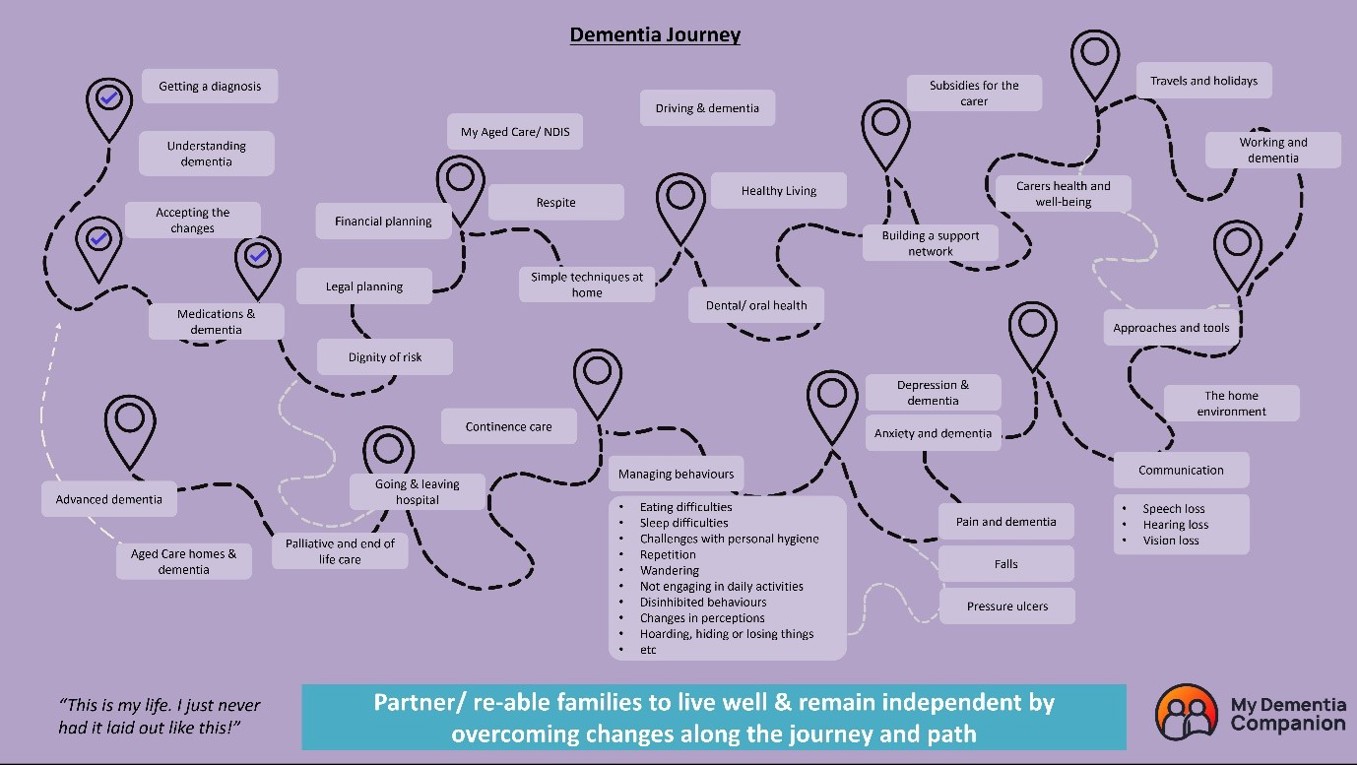The new technology helping home care staff support people living with dementia

Cognitive decline is cited 37 times in the new strengthened Aged Care Quality Standards, up from just one citation – now a new platform is aiming to help home care staff meet the new requirements.
With 70% of people with dementia living at home – and this number is only expected to grow – home care staff will be called on to care for an increasing number of older Australians living with dementia.
Yet training for most home care staff in dementia care is practically non-existent – perhaps a 30-minute training session once a year.
Providers that also offer residential aged care can draw on those resources – but the majority of home care providers do not have the time, resources or staff to ‘do dementia well’.
But what if you could save time and upskill staff – and deliver a better care experience for your clients and their families?
My Dementia Companion is a first-of-its-kind dementia tool, designed to guide carers of people living with dementia and professional care staff through the dementia journey.
The platform was founded by Nan Yu, a trained pharmacist, as a passion project in 2020. He wanted to develop a tool to help carers after he saw how families were struggling to navigate the period after a dementia diagnosis from his volunteering work and personal experience with family and friends.
Now at the request of professionals, the platform has been expanded to a comprehensive tool for home care staff to deliver best practice care.
How does it work?
My Dementia Companion provides an interactive map that guides the user along all the challenges that can arise on the dementia journey, from understanding a diagnosis to managing My Aged Care to issues such as driving, travel, home modifications, communication and changes in behaviours all the way through to end-of-life and palliative care.
The PRO tool integrates this map into the user’s daily workflow, making it simple to search for up-to-date information and care strategies, streamline assessments and care planning and track the client’s progression along the journey.
“No person’s journey is the same,” said Deb Stephens, its Head of Dementia Operations.

“But it has been proven that the earlier you get support when that cognitive decline starts and you can understand what’s happening, the better your chance of living a good life.”
For example, let’s say the client’s partner wants to start the conversation about continuing to drive or giving up their driver’s license.
The home care manager or worker can easily search on the app – according to their specific State or Territory – for forms and documentation such as how to apply for a disability parking permit or accessing taxi subsidies and email it directly to the client.
The tool also offers carer tips – which are also vetted before being published – that provide an extra source of information and support.
“We receive a lot of feedback from families saying, ‘I don’t feel so alone’ after reading that others are going through a similar experience,” said Deb.

Evidence of care and support for audits
From a compliance perspective, My Dementia Companion records all the home care team’s actions in real time – so the events and outcomes can be easily provided to the regulator.
“In the new Aged Care Quality Standards, cognitive decline is only cited once,” noted Deb.
“In the strengthened Standards, it is cited 37 times.”
The tool also provides a valuable source of micro-learning for home care teams, helping them to upskill on the job.
“By working with your clients, and researching information on the job, you’re building that knowledge bank while you are helping people,” added Deb.
At $5 a month for the CARER version and $29 a month for the PRO version – it’s an investment that will quickly pay off.














